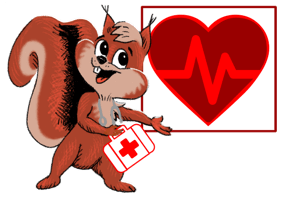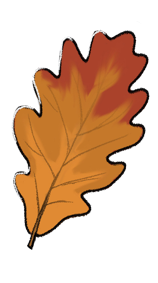Scholarly research reports and papers by authoritative persons in the medical and/or scientific professions.
More information
More information
Related categories 1
Sites 15
A research study used to identify genes that place individuals at risk for developing Major Depression and related disorders.
Paper proposing that major depressive disorder is inappropriate 'sickness behavior' generated by abnormalities in cytokines, and that antidepressants exert their specifically beneficial effects through analgesic action on the core dysphoric emotion of malaise. by Bruce G Charlton MD
Mental health encyclopedia covers various aspects of depression disorders.
Abstract on a double-blind, randomized and placebo-controlled trial in which Crocus sativus produced a significantly better outcome on the Hamilton depression rating scale than the placebo. (2005 John Wiley & Sons, Ltd)
Abstract of a study found that folic acid greatly improves the antidepressant action of fluoxetine and probably other antidepressants. (Nov. 2000)
Abstract of a comparison of St. John's wort extracts and fluoxetine suggests thta St. John's wort might be a treatment option to reduce symptoms in patients not suffering from full-blown depressive disorder. (March, April 2000)
A comparison of sequential cohorts treated with either cognitive-behavioral therapy or newer generation antidepressants found that depressed men treated with pharmacotherapy had significantly greater improvements.
Canadian author, reiki master, psychic medium, and certified channeller.
Yoshiharu Yamamoto of the University of Tokyo and colleagues measured how often subjects changed rate of movement and found that depressed people experience longer resting periods more frequently and shorter ones less frequently than healthy people do. Sept. 27, 2007.
(September 27, 2007)
Barbara Ehrenreich traces depression from its 17th century beginnings of a concern with self--"the new individualism", and Calvinism. An edited extract from "Dancing in the Streets: A History of Collective Joy."
(April 02, 2007)
Scientists have discovered a gene that makes mice happy, a finding that suggests another avenue of drugs for improving depression in humans. (December 28, 2006)
(December 28, 2006)
CHRM2 gene, on chromosome 7; strongly associated both with alcoholism and depression. From Washington University School of Medicine. (September 16, 2004)
(September 16, 2004)
Michele Trudeau reports on brain imaging technologies and genetic detective work that reveal what can cause depression and how best to treat it. [8:46 streaming audio broadcast]
(August 24, 2004)
Treatment successes in an open trial of light therapy for pregnant women, published in the American Journal of Psychiatry.
(April 01, 2002)
Paper that discusses diagnosis, treatment and the reproductive life cycle. Subhash C. Bhatia, M.D. and Shashi K. Bhatia, M.D. (July 1,1999)
(July 01, 1999)
Mental health encyclopedia covers various aspects of depression disorders.
Canadian author, reiki master, psychic medium, and certified channeller.
A research study used to identify genes that place individuals at risk for developing Major Depression and related disorders.
Abstract on a double-blind, randomized and placebo-controlled trial in which Crocus sativus produced a significantly better outcome on the Hamilton depression rating scale than the placebo. (2005 John Wiley & Sons, Ltd)
A comparison of sequential cohorts treated with either cognitive-behavioral therapy or newer generation antidepressants found that depressed men treated with pharmacotherapy had significantly greater improvements.
Abstract of a comparison of St. John's wort extracts and fluoxetine suggests thta St. John's wort might be a treatment option to reduce symptoms in patients not suffering from full-blown depressive disorder. (March, April 2000)
Abstract of a study found that folic acid greatly improves the antidepressant action of fluoxetine and probably other antidepressants. (Nov. 2000)
Paper proposing that major depressive disorder is inappropriate 'sickness behavior' generated by abnormalities in cytokines, and that antidepressants exert their specifically beneficial effects through analgesic action on the core dysphoric emotion of malaise. by Bruce G Charlton MD
Yoshiharu Yamamoto of the University of Tokyo and colleagues measured how often subjects changed rate of movement and found that depressed people experience longer resting periods more frequently and shorter ones less frequently than healthy people do. Sept. 27, 2007.
(September 27, 2007)
Barbara Ehrenreich traces depression from its 17th century beginnings of a concern with self--"the new individualism", and Calvinism. An edited extract from "Dancing in the Streets: A History of Collective Joy."
(April 02, 2007)
Scientists have discovered a gene that makes mice happy, a finding that suggests another avenue of drugs for improving depression in humans. (December 28, 2006)
(December 28, 2006)
CHRM2 gene, on chromosome 7; strongly associated both with alcoholism and depression. From Washington University School of Medicine. (September 16, 2004)
(September 16, 2004)
Michele Trudeau reports on brain imaging technologies and genetic detective work that reveal what can cause depression and how best to treat it. [8:46 streaming audio broadcast]
(August 24, 2004)
Treatment successes in an open trial of light therapy for pregnant women, published in the American Journal of Psychiatry.
(April 01, 2002)
Paper that discusses diagnosis, treatment and the reproductive life cycle. Subhash C. Bhatia, M.D. and Shashi K. Bhatia, M.D. (July 1,1999)
(July 01, 1999)

Last update:
April 28, 2022 at 17:51:40 UTC

Check out
Regional: Europe: United Kingdom: England: Devon: Clayhidon
- Recently edited by merlin1
- Recently edited by merlin1